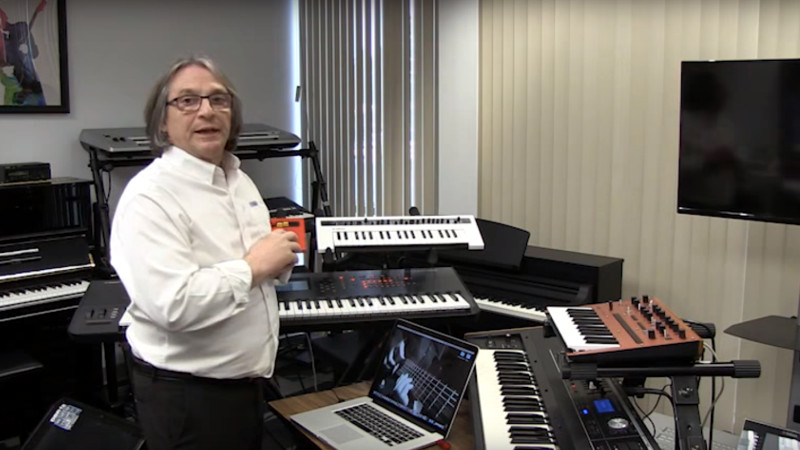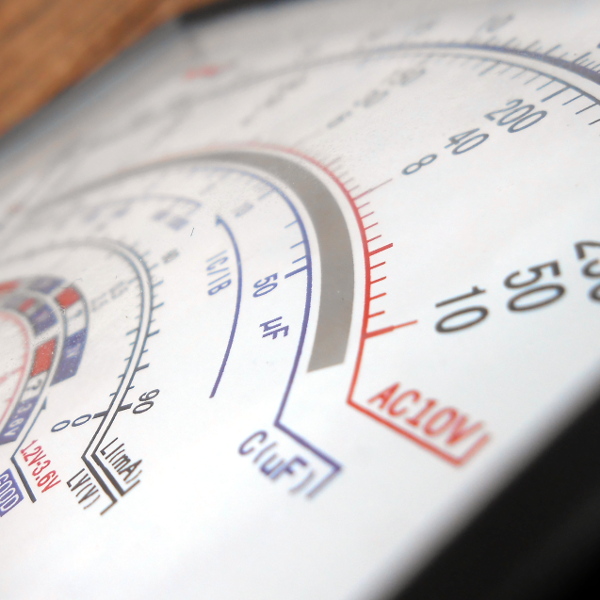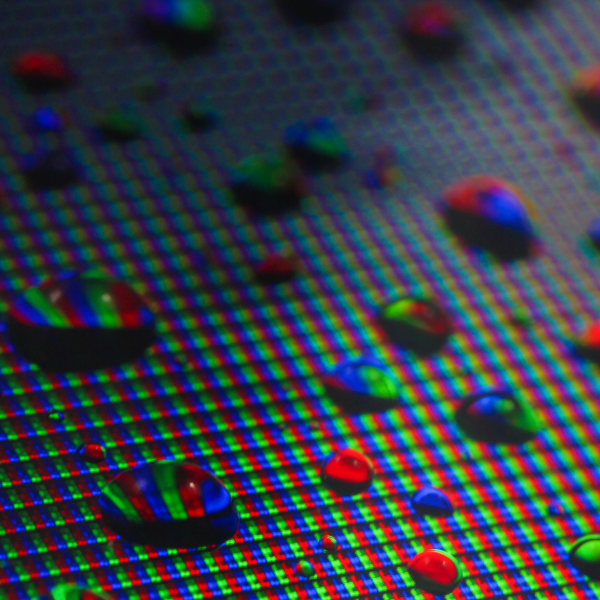It may have passed you by in the news, but the MIDI Manufacturers Association (MMA) has recently unveiled more details about the upcoming MIDI 2.0 standard. Previously we covered the prototyping phase start of this new standard. The original Musical Instrument Digital Interface standard was revealed all the way back in August of 1983, as a cooperation between companies including Moog Music, Roland, Yamaha, Korg, Kawai and others. It was the first universal interface that allowed one to connect and control all kinds of musical instruments.
Over the years, MIDI has seen use with the composing of music, allowing instruments to be controlled by a computer system and to easily share compositions between composers. Before MIDI such kind of control was limited to a number of proprietary interfaces, with limited functionality.
The MMA lists the key features of MIDI 2.0 as: Bidirectional, Backwards Compatible, and the enhancing of MIDI 1.0 where possible. Using a new technology called MIDI Capability Inquiry (MIDI-CI), a MIDI 2.0 device can exchange feature profiles and more with other 2.0 devices. 1.0 is the fallback if MIDI-CI finds no new functionality. MIDI-CI-based configuration can allow 2.0 devices to automatically configure themselves for their environment.
Suffice it to say, MIDI 2.0 is a far cry from the original MIDI standard. By transforming MIDI into a more versatile, bidirectional protocol, it opens new ways in which it can be used to tie musical devices and related together. It opens the possibility of even more creative hacks, many of which were featured on Hackaday already. What will you make with MIDI 2.0?
See a brief demonstration of this feature of MIDI 2.0 in the below video:

















“To implement MIDI-CI and MIDI 2.0, you need a manufacturers SysEx ID. A SysEx ID by itself is $250 a year, but it is included with your MMA membership.” (from https://www.midi.org/articles-old/details-about-midi-2-0-midi-ci-profiles-and-property-exchange)
… so you need to pay to implement MIDI 2.0? This does not seem very friendly for the type of people that read HaD.
– Yep, and for those interested – “…is included with your MMA membership” = $500/yr lowest tier = companies $1M USD/yr and under. And while the linked page does say $250/yr SysEx ID only without MMA membership, the actual form for this on their site states $200/yr payment to be included.
It sounds like someone didn’t learn from (or learned the wrong lessons from) USB: you can be a jerk about allocating VIDs; but that mostly just leads to VID/PID squatting that requires drivers to do dodgy nonstandard probing because values that are supposed to be useful can’t be relied upon.
These aren’t the bad old days where your list of IDs had to be directly backward compatible with something you could express with a DIP switch or two; there’s just no point in treating identifying numbers like a scarce resource.
I expect that hackers will search for the SysEx IDs of now defunct companies. I expect there will have been a few MIDI vendors that have failed since 1983.
https://electronicmusic.fandom.com/wiki/List_of_MIDI_Manufacturer_IDs
If the MMA wants to avoid the possibility of ID collisions, and mis-identification, they could officially nominate/sacrifice the existing SysEx ID of a defunct company for hacker use. Otherwise, the hacker community will likely do this for them.
The defunct company’s products are still out there and need to work (well, unless they find one that in fact failed to launch anything). I bet some devices will be able to put the friendly name on screen from its copy of the table of members & IDs, and that has to keep working. They could more easily mark one as reserved for educational/hobby use, maintaining their historical record of companies that ever had one, and stipulating only that nothing will ever be for sale.
I agree that any “pirating” of SysEx IDs should be done only for personal, non-commercial use, to avoid breaking MIDI installations in the wild. If someone is shipping MIDI devices, they really should get their own ID. However, if someone is experimenting with MIDI in the privacy of their own home, and the ID is never released, there is no harm done to the outside MIDI community.
There is also the issue of someone who is making small hobby devices and selling them on tindie, where they are only going to sell a few dozen units at most, and their total profits will be less than a single year of paying for a SysEx ID.
…and MIDI is supposed to be an open, license free standard!
@seanrhinehart yes if nobody finds out you are using 0xBEEF3D then you are not using it.
@CR Yes I admit that hard-masking any sales is less reasonable than e.g. choosing some nice threshold on actual profitability. But what is “open, license free”? Open like OpenGL/AL/CL? Yeah that’d be nice… this is royalty free, at least. I haven’t read anything about licenses, just official recognition. Disclaimer: I haven’t read much at all ;)
I actually emailed the Midi group asking about us hardware hackers.
I got the following reply….
“The purpose of the Manufacturer SysEx ID is to enable product makers to use custom messages without fear that they will interfere with another product, and vice versa. This is important for anyone distributing products to the public because the public expects products to all cooperate. But if you are not making products for public use, then your chance of conflict with another device is minimal (or zero, if your products are not used with any other product at all), and in that case, you can use the “non-commercial” ID (7C hex) which is designated for devices not for public distribution. You just can’t use that ID in any product that is made available to the public.”
Cool. Sounds like it should be a non-issue then.
That is good news for the hobbyist and the experimenter but it doesn’t begin to approach the problem with FOSS (e.g. Calf plugins) and things on Tindie.
“What will you make with MIDI 2.0?”
That depends on whether and how much you absolutely need to get on the right side of a paywall.
From the same first link:
“To implement MIDI-CI and MIDI 2.0, you need a manufacturers SysEx ID. A SysEx ID by itself is $250 a year, but it is included with your MMA membership. You will also have access to the MMA Github which has code for MIDI 2.0 to MIDI 1.0 translation (and vis versa), MIDI 2.0 Scope, a tool for sending and testing MIDI 2.0 messages developed by Art and Logic and Property Exchange Work Bench, an application developed by Yamaha for prototyping and testing Property Exchange.
It’ll be nice if hobbyists can do anything, and then, how will that work? Just picking a number, changing it after a manufacturer is issued the same one? At least Objective Development registered a USB vendor ID that we could freely use with V-USB projects but this is presumably different. We don’t know how much one can do without any ID or using a made-up ID until “whenever” the specs are finalized and published (to non-members).
…of course that fell out of a moderation queue when I wasn’t looking. And I left a quote unclosed, neat++
Wait a second. If this SysEx ID costs $250/year, then what happens if you fail to renew it? Would they really reassign it to a different owner?
I don’t see how they could revoke the ID, since the first owner could have deployed products to the field that use it, which would cause conflicts for the second and subsequent owners. For the IDs to work as intended, they basically can’t be revoked.
I have a better source now.
https://www.midi.org/specifications-old/item/manufacturer-id-numbers
If a manufacturer stops paying their yearly dues, they will have their ID marked as “rescinded”, “relinquished”, “suspended”, “Past Due”, or “out of business”.
However, it looks like the ID is not re-issued, since a new vendor would not likely accept a “used” SysEx ID, after paying for a new one.
Putting up this paywall and not giving out a range of free ID’s (If That’s the case) is an absolute fail in 2019. The MMA fails to see how much the DIY community and very small businesses even started the new rise of MIDI in recent years. This will make very bad publicity.
To be fair to the MMA, if the protocol requires an ID to avoid conflicts, I can see the requirement for creating and maintaining a database. Whether that has to cost 250 dollars a year (or more) is debatable.
The problem with standards is that there are so many to choose from. If MIDI 2.0 is expensive or difficult to implement, I’m sure people will find a different standard to use or a way around the roadblocks.
I can see your point but adrifromhh is right about the “new rise of MIDI” that happened thanks to hackers and hobbyists. There won’t be a lot of people that will be OK with paying such a huge amount for DIY projects and will probably stick to 1.0 (or create a new standard ?).
Good question, got me thinking and searching. From https://www.midi.org/request-sysex-id
“The MMA publishes a list of every assigned System Exclusive ID number. Companies that are known to be producing products using their ID may be listed on http://www.midi.org along with a link to their company web site. Companies that are not current with their ID Fee may have the ID suspended or revoked and will be noted as such on the website. … Companies that do not want to become MMA Members … must pay the Annual ID Fee and agree to continue to pay the then-current fee in each calendar year during which they produce any products that use the ID.”
The list:
https://www.midi.org/specifications/item/manufacturer-id-numbers
It looks like they’re using most of 24 bits. Like Fuzzyfuzzyfungus said, there isn’t any scarcity. Lots of current and suspended, a few relinquished and rescinded. At least one ‘out of business’.
::facepalm:: meant as a reply to anszom #6152277, golly tha internet shore is hard, an it ain’t gettin’ any easier
I think we just need a world wide UUID for businesses and any individuals that want to tinker. Computers can easily cope with a reasonable number of bits needed. This would eliminate the need for such kind of exclusive ID from new standards. Why pay $200+ to every and each organization when you would only ever need to get one UUID?
Everyone can take one randomly for their company and one for each product, USB style, and one for each shipped unit as a serial number, and they would never run out. Maybe if you started counting Si atoms in the IC packages, I dunno. Of course it’s not so simple that everyone still needs to be able to find out you claimed this particular handful. And someone probably needs to officially define “wrongly”, and prevent anyone wrongly land-grabbing in that space, etc.